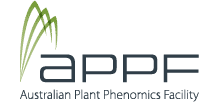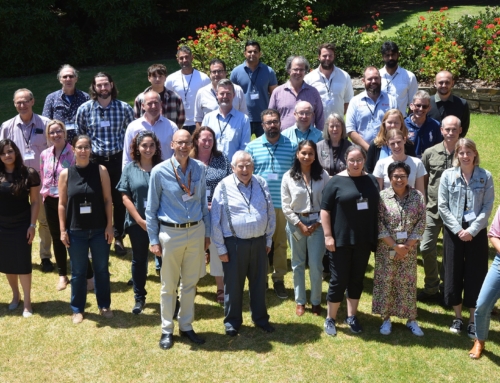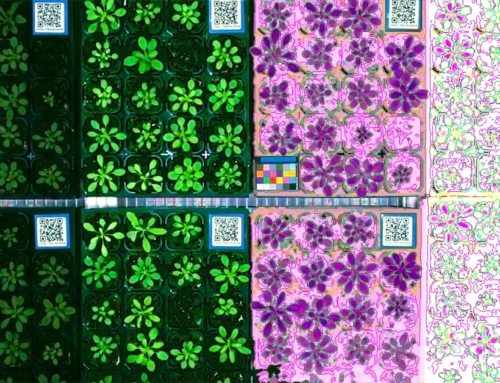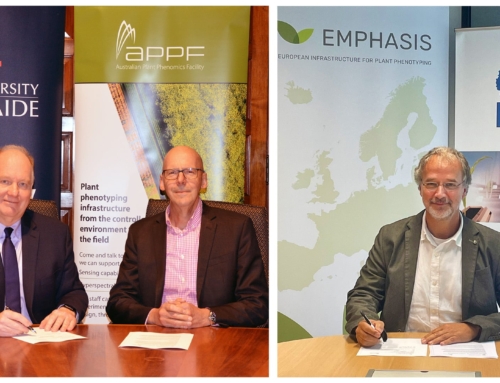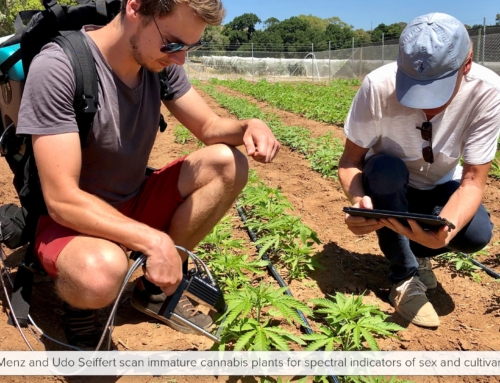Our recent attendance at HortConnect 2023, at the Adelaide Convention Centre, left us inspired about the potential of phenotyping in horticultural crops.
The annual event, hosted by AUSVEG and the International Fresh Produce Association of Australia-New Zealand (IFPA A-NZ), has become one of the largest horticulture events in the southern hemisphere.
With displays over two massive halls, delegates could investigate all things hort – from machinery, crop sensors, food samples, insurance, plant nutrition, pest control, labour assistance and many other industry-relevant booths. We were excited to be one of the only booths featuring plant phenotyping.
Team APPF partnered with our friends at the Centre for Entrepreneurial Agri-Technology (@CEAT_Hub), who are based at the Australian National University, to have a booth in the exhibition hall, and this proved to be a site for positive engagement and interaction with delegates.
Plant phenotyping in horticulture, from the controlled environment to the field, is an exciting growth area for the APPF.
Our phenotyping capabilities, infrastructure and team provide services which enable the assessment, measurement and characterization of plant traits and performance. This can include plant height, leaf area, flowering time, fruit quality, disease resistance, and many others.
From discussions with delegates, it was apparent APPF offer a specific range of services which could benefit horticultural industries. These include:
- Scanning of tree crops.
Phenotyping tree crops to measure size and morphology of trees, identify fruit location and maturity, in order to accelerate harvesting and identify target traits for breeding. - Stress detection and management.
Thermal and hyperspectral imaging for early detection and monitoring of plant stress conditions such as nutrient deficiencies, disease symptoms or water stress, to schedule early and targeted intervention. - Yield prediction.
Estimations of crop yield by measuring and analysing various plant traits, such as canopy cover, leaf area, and plant height. - Crop breeding and selection.
Phenotyping to gain valuable data to select and develop improved crop varieties. - Crop management and optimisation.
Optimising crop management practices by providing real-time information on plant growth and development. - Pest and disease monitoring.
In-field scanning to assist with early pest and disease detection, and ongoing monitoring. - Quality assessment.
Digital phenotyping/hyperspectral imaging/sensing to enable the evaluation of quality attributes in horticulture crops during the season. - Post-harvest analysis.
X-ray analysis (penetrating scans) to help visualise internal structures. This can aid breeding for quality and post-harvest processing. - Precision agriculture baselining.
Digital plant phenotyping to support precision agriculture techniques by integrating plant-level data with spatial and temporal information. - Water use efficiency.
Support to establish, monitor and evaluate water use efficiency experiments, which assist establishing baseline and ongoing water use.
Overall, phenotyping in horticulture enables researchers, breeders, and growers to understand, evaluate, and manipulate plant traits for improved crop performance, sustainability, and resilience in various environmental conditions.
Our staff can help from experiment inception and design, through to data analysis.
For more information:
Email Kerry Bormann
Business Manager of The Plant Accelerator®
Phone +61 8 8313 6432
